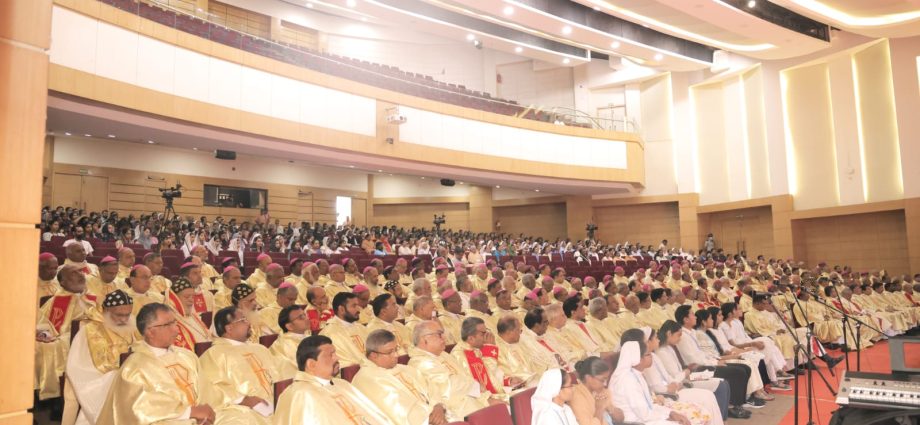By M K George
Rome, Feb 11, 2024: With a rare kind of lucidity, courage and prophesy, the Catholic Bishops’ Conference of India (CBCI) in early February, decried the rising polarisation in the Indian society and called for the upholding the secular ethos of the nation.
They showed the audacity to condemn the socio-political situation of the country highlighting the ever-increasing polarisation, weakening of democratic institutions, attacks against minorities and unemployment. They committed themselves to respond to these crises in the path of non-violence, healing, justice and reconciliation.
Now to the critical question: Will the priests, religious and laity listen and act?
Need for a Self-Examen
In the Christian tradition any change begins with acknowledging our brokenness, asking pardon and being converted. If the Indian Christians need to respond to the call of the bishops, then they should begin with a real examination of themselves, especially their culpability in three areas: scandalizing disunity among the Christians, naïve social analysis and conflicting leadership.
The disunity among Christians is not just between various churches, but also within each church itself. Look at the number of groups among the Christians, the numerous litigations and the violence that is perpetrated in the name of Jesus, the advocate of love. Called light-heartedly, sheep stealing, converting among Christian groups is becoming a point of disunity.
The naiveté of social analysis of the Church becomes sharper with this CBCI statement. If the CBCI really believes that the ruling party is leading the nation to polarization, why would their bishops and lay leaders encourage the faithful to join the party and make them win elections? The Church cannot anymore, if they want to be honest with themselves, even condone its members aligning with the ruling party.
The crisis of leadership is not just in the Church, but also all over the world and in every human group that we know of. One of the crudest examples would be the drama going around the past president of U S, Donald Trump. If a good number of Americans still think Trump can lead them, then the very concept of leadership has undergone tragic mutations.
The Catholic Church leadership has been pathetically weak. They have been occupied with peripheral issues and but for a recent exception of this statement, been issuing contradictory statements.
Exceptional times call for exceptional actions
The Indian Christians are living through exceptional times, of crisis, lack of clear leadership and because of these clear confusion. We need leaders who will articulate for ourselves what needs to be done. We do have such leaders around. Unfortunately, due to the prevailing clericalism, they are neither recognized nor called upon.
As Pope Francis has repeatedly been saying, we need to learn to live synodally. Discernment in common, more prayer and action in common are going to be the way to go ahead. In this context, the CBCI statement is an appropriate point to start, on a process healing, reconciliation and Justice.
Where to begin?
The authenticity of this statement will be in following this up to the last point of the Church, resulting in concrete action. Will this statement remain in the archives or will it reach every Christian and every Indian citizen who will be concerned about the future of the nation?
The Litmus test
Therefore, the litmus test for the commitment to the follow up of this statement would be for the following:
1. Every bishop will form a high-power committee, consisting of priests, laity, religious, other churches and other civil society actors, to study this statement, translate them into local language, and propose a viable action follow up plan. They will also oversee the follow up action, encouraging, supporting and networking.
2. Every parish, every group – youth, pious associations etc. – will study the statement and see what each one can do at their levels.
3. A consolidated action plan for the whole diocese would emerge
One can ignore the perilous clouds over the Indian nation in terms of the dangers listed by the CBCI statement at one’s own peril. The leadership of the bishops, eminent laity, priests, religious and other men and women of good will across all political and religious affiliations need to be tapped.
The statement inspires when it says, ‘We will journey together with all people of goodwill, sharing in each other’s joys and sorrows. We will conscientize the members of the Church to build bridges with their brothers and sisters of different faiths through Inter-Religious Dialogue and neighbourhood communities.”
Dear Bishops, Priests, Religious and Laity, this is the time to walk the talk.
(Jesuit Father M K George is a Rome-based Indian social scientist.)











